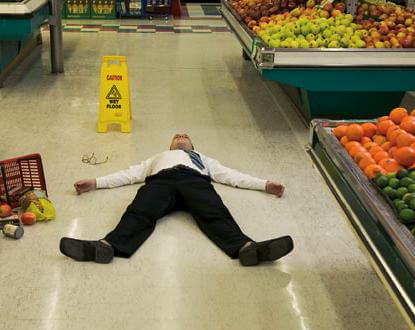
Many businesses fail to adequately protects its customers from slipping and falling on their premises. In fact, OSHA recently gave 6,000 citations to businesses for not complying with fall protection standards. Supermarkets are a common place for slips and falls. If you suffered one of these accidents, it is important to take certain steps. I am a […]
 Call Earley Before It’s Too Late!
Call Earley Before It’s Too Late!